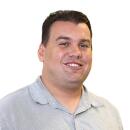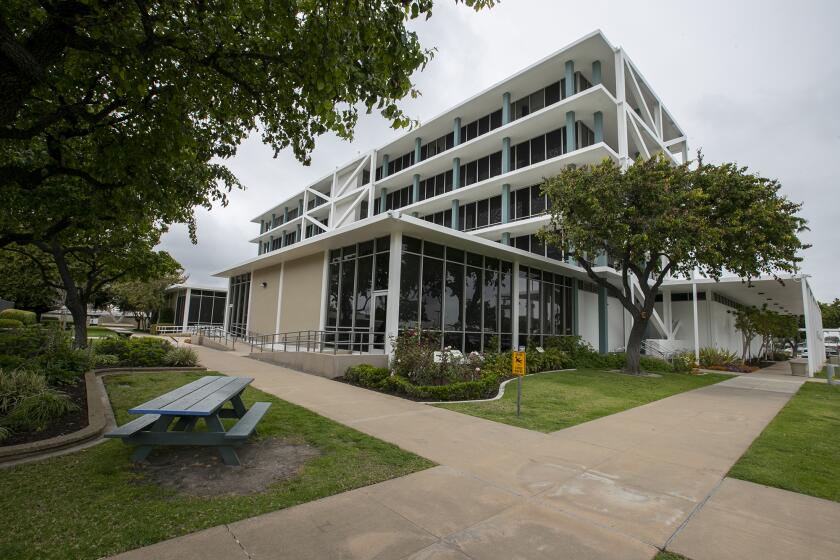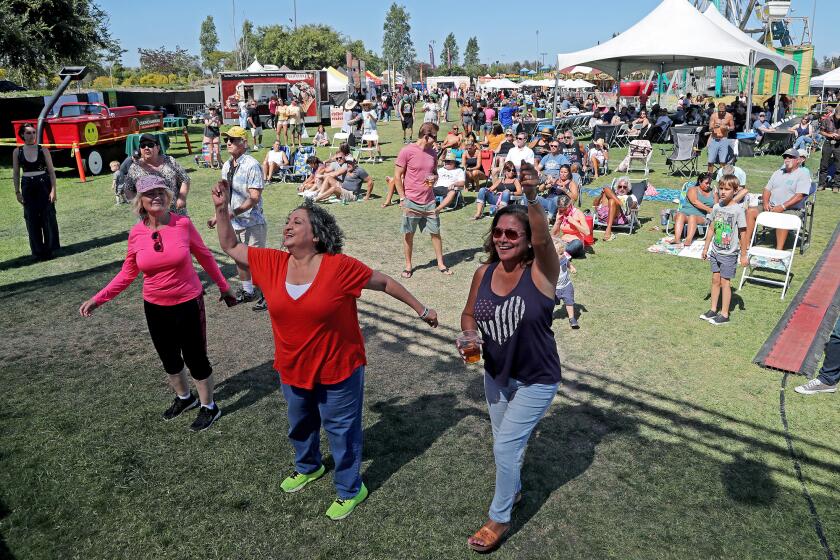Going steady: Patients in Fountain Valley benefit from new tremor treatment
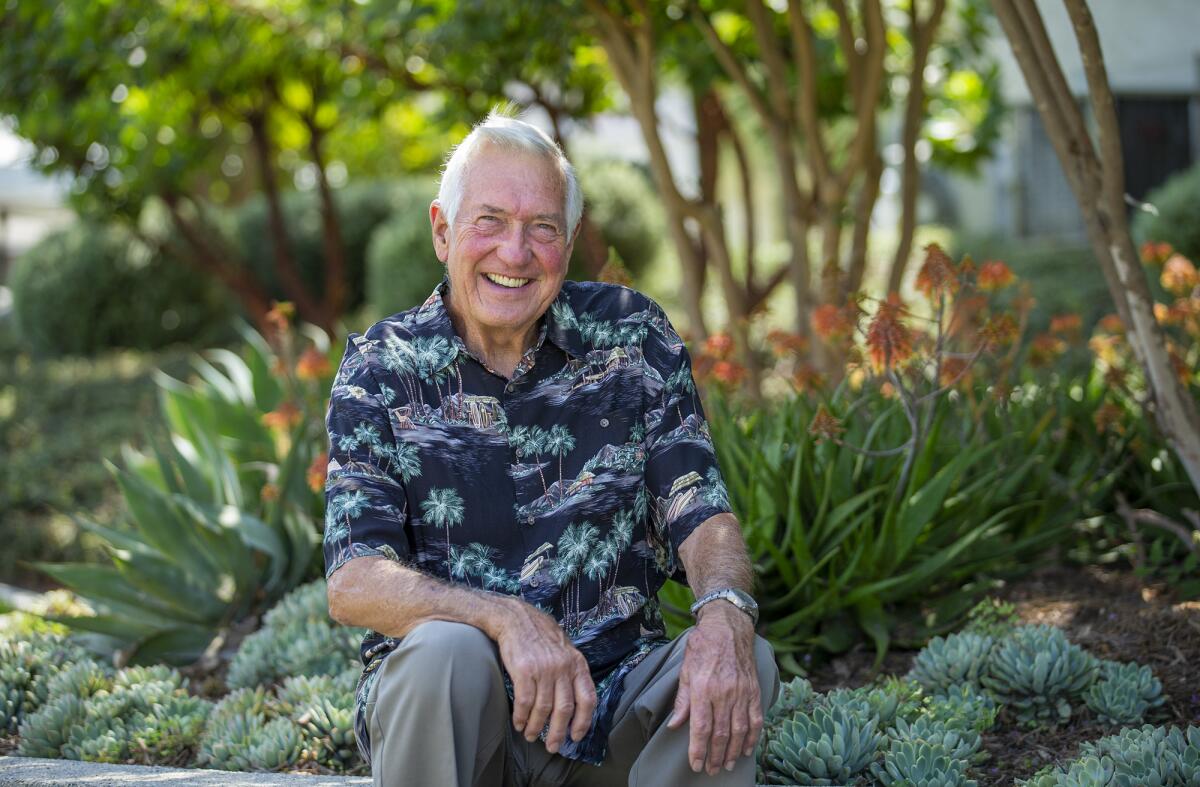
- Share via
It’s been nearly 15 years since Jim Spears noticed something during a watercolor class.
Spears, a Fountain Valley resident, had recently retired from the Los Angeles Department of Water and Power. But he was now having trouble keeping his paintbrush straight.
The essential tremor in his right hand continued to worsen, making it difficult for Spears to enjoy his retired life.
“They were so bad that I had to eat with my left hand,” Spears, who turns 80 on Sept. 22, said of the tremors. “I couldn’t keep food on the fork with my right hand. I couldn’t hold a cup of coffee without spilling it. You’ve got to think about hygiene. You’ve got to think about all of the aspects of life, and what it’s like to endure a hand that can’t be controlled.”
Earlier this year, though, Spears found hope. His wife Berta saw a new procedure for tremors being advertised. Spears went through some tests and had a couple of interviews with Dr. Devin Binder, medical director of the Neuroscience Institute at MemorialCare Orange Coast Medical Center in Fountain Valley.
Spears was given this new procedure, called MR-guided focused ultrasound, on April 12. Since then, the tremor has disappeared from his right hand.
An avid outdoorsman, Spears, who also had back surgery to ease paid caused by sciatica, can get back to hunting and fishing.
The MR-guided focused ultrasound uses sound energy to target and treat a small spot in the thalamus, considered to be responsible for the tremor. It is an outpatient procedure and goes deep into the brain without surgical incision, implants or radiation.
Orange Coast Medical Center is the only hospital in Orange County, and one of two in Southern California, to offer the treatment.
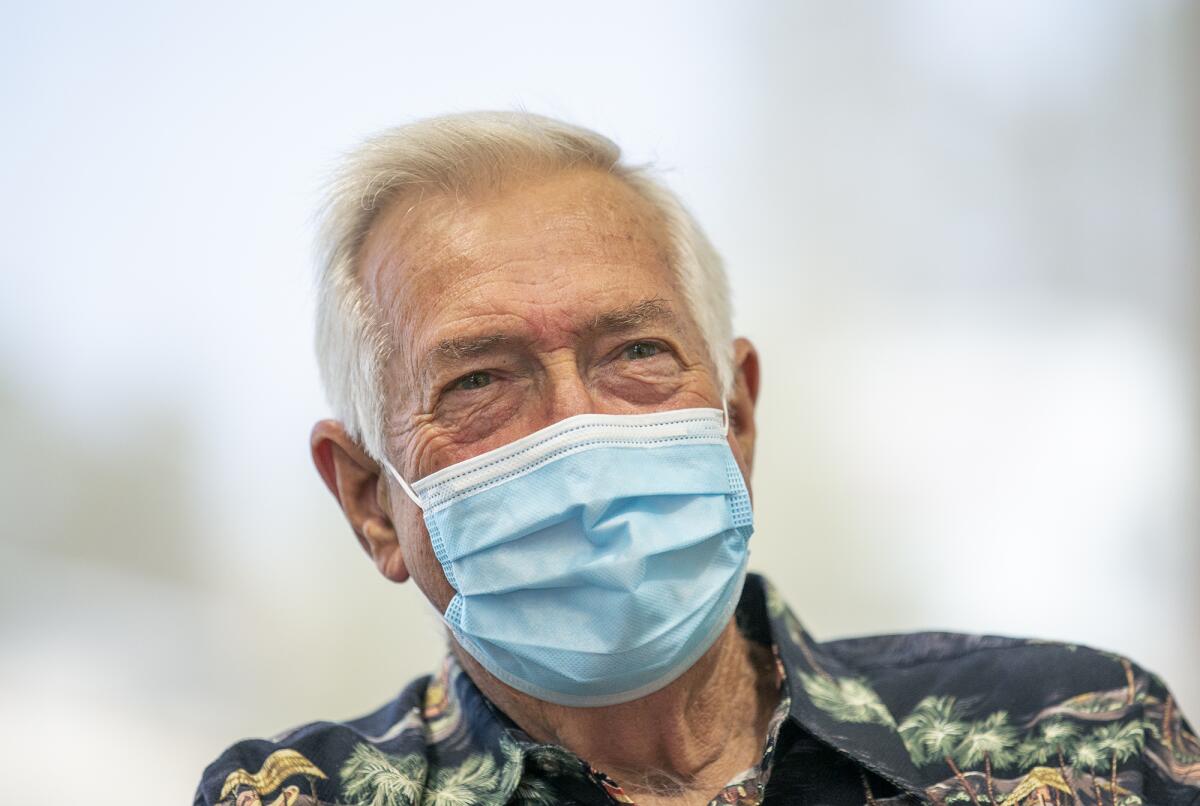
Binder said in an email that patients with essential tremor or tremor-predominant Parkinson’s disease previously had just two options: medication therapy or deep brain stimulation (DBS).
“DBS is effective but is an invasive surgical procedure with risks of bleeding, infection and hardware failure,” he said. “In addition, DBS requires implantation of a permanent medical device with a battery (‘brain pacemaker’) and as such needs to be constantly followed by a neurologist and neurosurgeon for DBS programming, battery replacement, etc.”
As a neurosurgeon who has treated patients with tremors for more than a decade using DBS, Binder said he’s thrilled to have this new option.
“First, it enables patients, particularly those with one-sided severe tremor, a great treatment option to completely or near-completely eliminate their tremor,” he said. “Second, we know so much about the risks and benefits of both DBS and [the focused ultrasound] that we can individualize the treatment options in each patient case.”
The procedure was launched at Orange Coast Medical Center last fall, spokeswoman Elizabeth Schmidt said. Since last November, 35 procedures have been performed.
Spears sees things as back to normal. The next time his son, Jim Jr., organizes a fishing trip, Jim Sr. is in.
He’s also headed to Colorado for an 80th birthday celebration at the home of his daughter, Karin. There’s just one rule.
“She tells me, ‘Make sure you don’t bring your bow or your rifle, Dad.’” Jim Spears said. “I’m a hunter, but I love wildlife. I love to watch it as well.”
With the tremor gone in his right hand and only a very mild tremor remaining in his left hand, plus no more back pain, he is ready to get back to living.
“I expected that it would be better, but I didn’t know how much better,” he said. “I felt like it was a miracle.”
All the latest on Orange County from Orange County.
Get our free TimesOC newsletter.
You may occasionally receive promotional content from the Daily Pilot.
